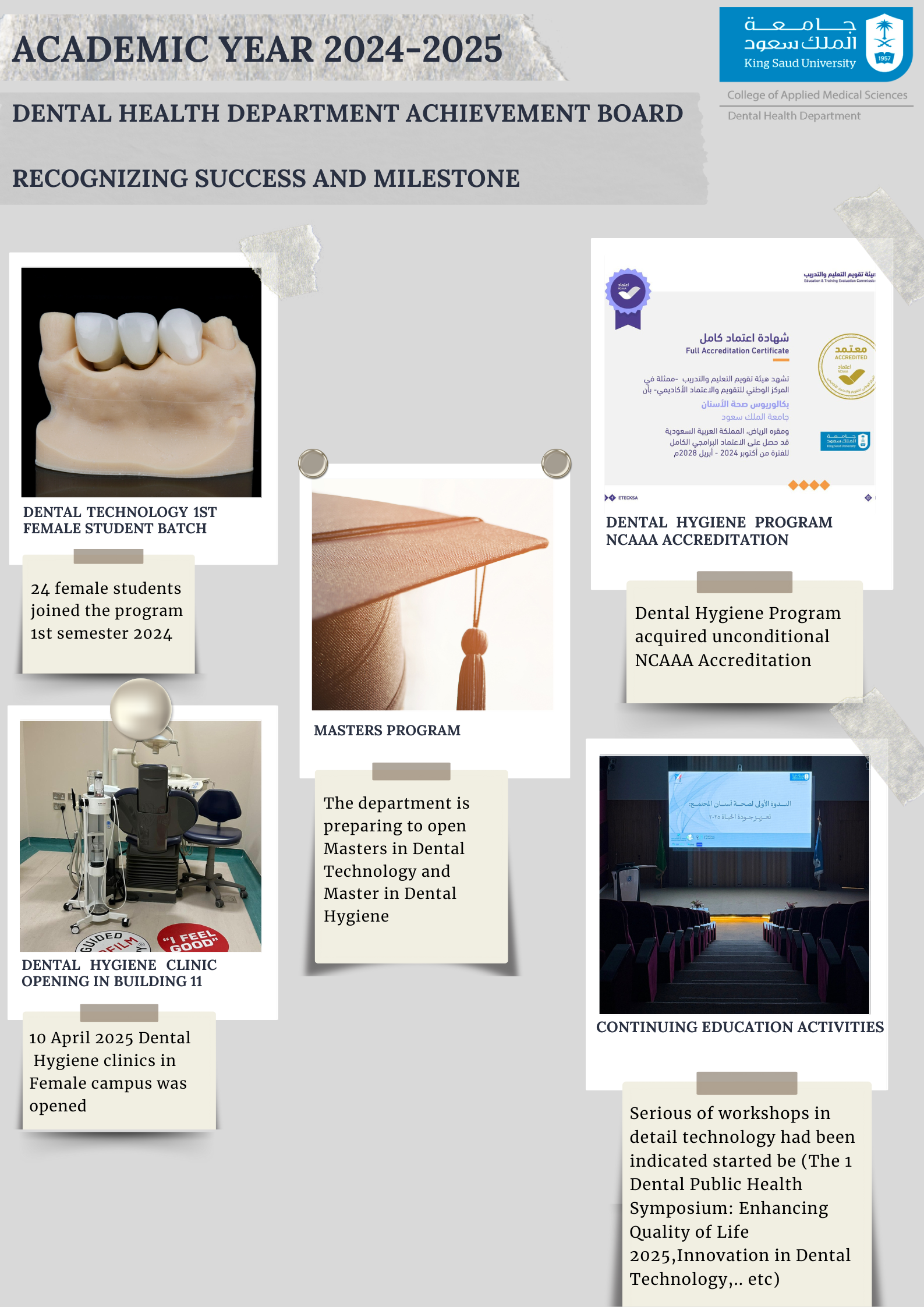Research
Contract us
For all inquiries and suggestions, please contact:
Clinical Laboratory Sciences | Male campus | Female campus |
Phone The Advisory Committee of the Rehabilitation Health Sciences DepartmentList of the PT program teaching staff and employeesProgram's HandbookMission and Goals of PT ProgramThe mission of the PT program is " To enhance the quality of physical therapy and rehabilitation services nationally and globally through preparing qualified and creative physical therapists who can provide preventive and rehabilitative services to the community, serve the community, and help in producing creative scientific research that helps in developing the physical therapy profession".The program goals are:Historical BackgroundThe Radiological Sciences program at King Saud University was launched in 1980 to meet the need in Kingdom of Saudi Arabia for skilled Radiologic Technologists. Advisory Board |

